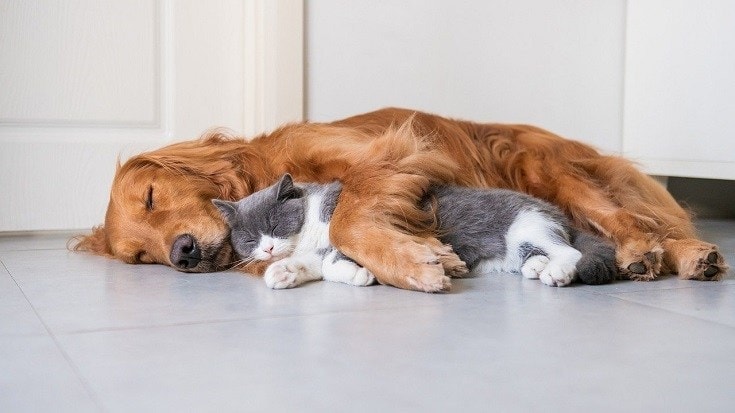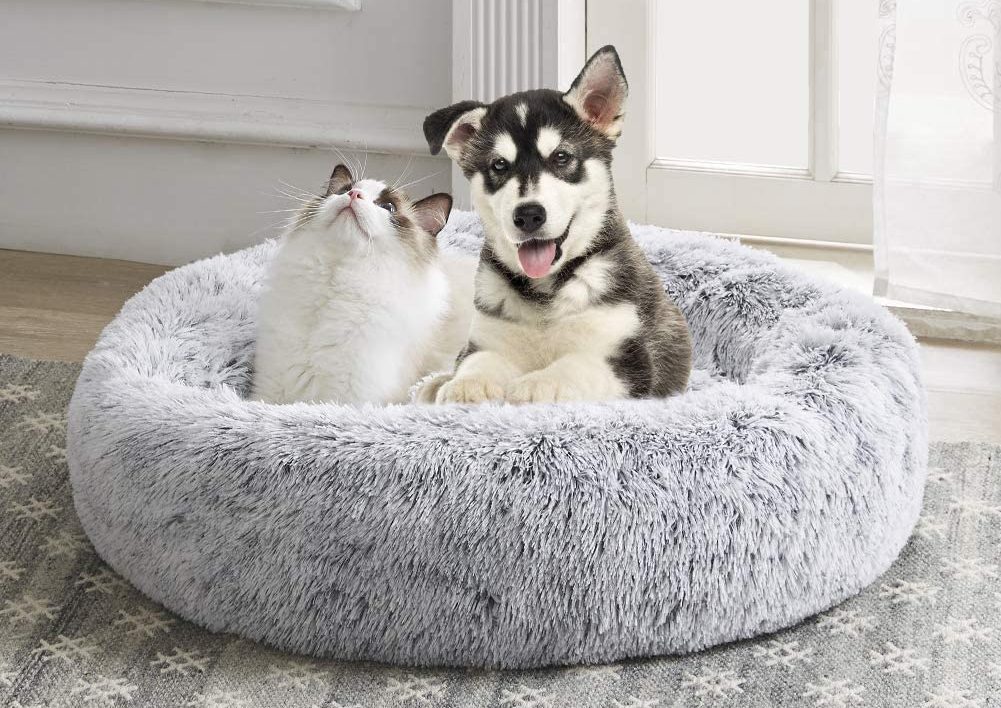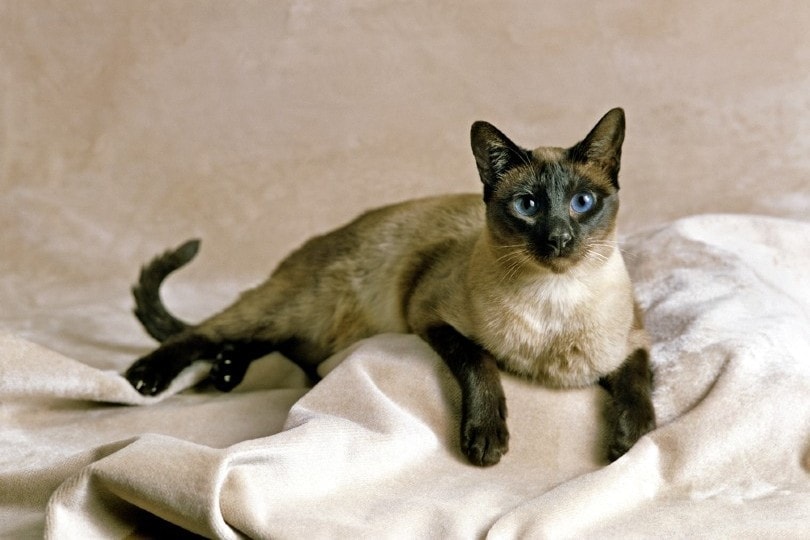
Growing up, most of us have heard the “factoid” that one “human year” equals seven “cat/dog years,” but few of us ever think to challenge or research it. It seems so natural that they age about seven times faster than humans. However, the 1:7 ratio is misleading at best because cats and dogs age differently than humans and each other.
Do Cats and Dogs Age at the Same Rate?
This is a difficult question since dogs age differently based on their size. Large dogs age much faster than small dogs. The average lifespan of a large or giant breed dog is 10–12 years, while a small dog’s lifespan averages 14–18 years.

How Fast Do Cats Age?
Cats don’t age linearly, at least not in the way humans are used to. Cats age much faster in their first two years, then plateau out and coast until they die. The first year of a cat’s life is approximately equivalent to 15 years of a human’s life. When your cat reaches the second year of their life, they’ll be called the “human age” of 24. After this, it plateaus out, and each subsequent year is equivalent to about four “human years” in aging.
To determine your cat’s age, use the following formula: 24+((X-2)*4), where X equals your cat’s chronological age. If your cat is chronologically younger than 2 years old, they are approximately 15 years old in “human years.”
If math isn’t your strong suit, we’ve prepared a handy chart to help you find out your cat’s actual age in “human years.”
| Chronological Age | Age in “Human Years” |
| 1 | 15 |
| 2 | 24 |
| 3 | 28 |
| 4 | 32 |
| 5 | 36 |
| 6 | 40 |
| 7 | 44 |
| 8 | 48 |
| 9 | 52 |
| 10 | 56 |
| 11 | 60 |
| 12 | 64 |
| 13 | 68 |
| 14 | 72 |
| 15 | 76 |
| 16 | 80 |
| 17 | 84 |
| 18 | 88 |
| 19 | 92 |
Why Does My Cat’s Age in Human Years Matter?
It can be hard to see why your cat’s “human age” matters. Your cat’s human age matters because we need to provide special care as cats age. Just like humans have more support needs as they age, so do cats. As your cat gets older, they may see decreased mobility, age-related illness, and a general slowing down of their lifestyle as their bodies enter the golden years.
As your cat gets older, more of their care will fall to the owners since the cat will be less able to care for themselves. Just as human elders may need extra help performing essential living tasks, cats may need help getting their basic needs met as they age.
Understanding that your cat ages faster than humans and knowing how fast they age can help you plan your cat’s future adequately. Your cat may need a ramp leading into their litter box, special food to help control their illnesses, or baths if they can no longer reach their own body to clean it. Understanding how cats age can help us react with compassion instead of anger and resentment.
What Are Some Common Age-Related Illnesses in Cats?
Just like humans are more prone to illness as they age, cats are more likely to develop and expire from various diseases as they get older. The older your cat gets, the more their body will start to creak and shut down. You should watch out for some common conditions as your cat gets older.
Many of the conditions that cats tend to develop as they get older have the best prognosis when the cat receives early medical intervention.
Without treatment, many age-related diseases can be fatal for cats. So, keep an eye out to make sure they’re in good health, and don’t be afraid to reach out to your veterinarian to ask for help with judging your cat’s overall health.

1. Hyperthyroidism/Overactive Thyroid
Hyperthyroidism is generally caused by a benign tumor growing within the thyroid gland. The tumor causes the thyroid to overproduce your cat’s hormones to regulate their metabolism and digestive rates.
2. Diabetes
Most cases of diabetes in cats are similar to Type II diabetes in humans. In cats with diabetes, the blood sugar levels are elevated because the insulin being produced by the body is either insufficient or ineffective. Diabetes is most common in indoor, middle-aged, obese cats, but any cat can develop diabetes from poor diet or aging.
3. Kidney Disease
Kidney disease is also common in aging cats. Both acute kidney failure and chronic kidney disease can rear their ugly heads as your cat gets older. You’ll want to watch out for this disease, especially since acute and chronic kidney disease can become fatal.
Final Thoughts
Understanding how our cats age can help us provide the best possible care for them and make their golden years that much more enjoyable. Cats age slower than dogs, but they still age faster than humans, and we must be able to give them the extra support they need as they grow old with us.
Featured Image Credit: Bao_5, Pixabay







